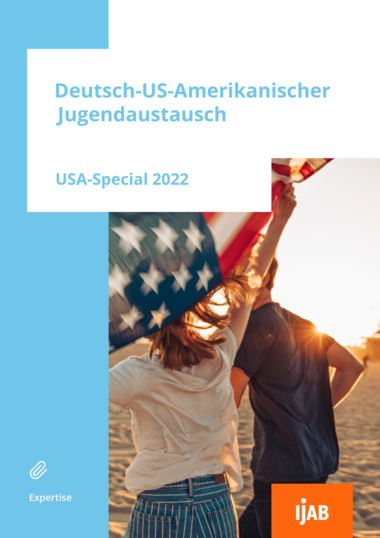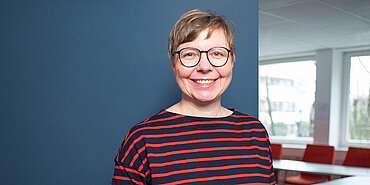For centuries, people from all over the world have been magnetically drawn to the United States of America, the "land of opportunity," as it is often called. This also includes Germans who crossed the Atlantic in large numbers, quite often from Hamburg, to start a new life in the New World. The United States is still a popular, if not the most popular, travel destination for many people, including the younger generation. Between 10,000 and 13,000 students spend time at a US-American high school as part of a school exchange every year.
The United States also plays an important role in the context of international youth work. This is particularly true of Hamburg-based youth work professionals who work in child and youth services. An exchange with the United States, especially Chicago, is an interesting and attractive opportunity for them. What started out 25 years ago in 1996 as a bilateral exchange between the sister cities of Chicago and Hamburg has since developed into a tri-city exchange with Birmingham in the UK and has become an integral part of the city's international youth work activities. Several hundred youth workers and professionals from child and youth services but also other areas of social work have participated in the programs, forged professional and personal ties, and gained a wide range of experiences as a result of the close cooperation between the National Association of Social Work (NASW) in Chicago, Birmingham city council, and Hamburg’s youth welfare office.
Health protection, digitalization, urbanization: There’s lots to talk about
Like youth exchanges, the youth work expert exchange with Chicago is designed as a face-to-face, on-site meeting. Participants visit projects and institutions in the respective host city and speak to representatives from universities, politics, and administration. They discuss their practical experiences and the impact that policies have on their work, and through this expand their knowledge of theories and concepts. Their topics are as diverse as work in child and youth services. Health protection, digitalization, city expansion, or dealing with the rise of populism and nationalism are discussed alongside new concepts in social work, such as Signs of Safety or social space orientation.
Not just a good network: What makes expert exchange programs successful?
Planning and organizing exchanges, however, can be a challenging undertaking. Their success depends not only on the commitment and personal relationships of the organizers. In addition to language barriers (the working language is English), which can be intimidating for younger German youth work experts, resource issues also play a major role. This is particularly true for US-American youth work experts. Unlike the German participants, who are supported by Federal Child and Youth Plan and local Senate funds, the youth work experts from Chicago not only have to pay for the ten-day trips out of their own pockets, but they also have to organize them in their free time. In the absence of government funding, the success of incoming projects ultimately depends on finding enough sponsors to fulfil the host principle, whereby the host organization covers the costs incurred by the program in its own country. Consequently, it is sometimes difficult to recruit committed youth work professionals for the duration of a ten-day exchange.
It is therefore especially gratifying to see that a viable network of committed supporters has nevertheless emerged in and between the three cities over the years, in partnership with policymakers and universities. The network has even managed to survive the COVID-19 pandemic. Indeed, the tri-city exchange appears to have lost none of its appeal under the changing conditions. The digital formats of 2020 and 2021 even seem to have encouraged the participation of both German and US youth workers who might not have taken part under "normal" circumstances.
Face-to-face meetings during the pandemic
Feedback from participants reflects the importance of international exchanges especially during a pandemic. Participants welcomed the opportunity to forget about the demands of everyday life for a while and gain a broader perspective, but also to see they were not the only ones facing the impacts of the pandemic.
Although they are no substitute for personal meetings, online formats have proven they can effectively complement face-to-face formats. This experience will serve the organizers well as they continue to strengthen international youth work ties with Chicago (and Birmingham) both for youth work experts and children and young people, and to exploit their inherent benefits. Digital formats should enable interested parties to regularly discuss selected topics in an informal setting without requiring too much time or organizational effort, and to forge professional and personal ties throughout the year. Ideally, this will help make international youth work an integral part of youth work experts’ everyday practice and encourage them to organize international activities for young people. There are certainly enough things to talk about.







